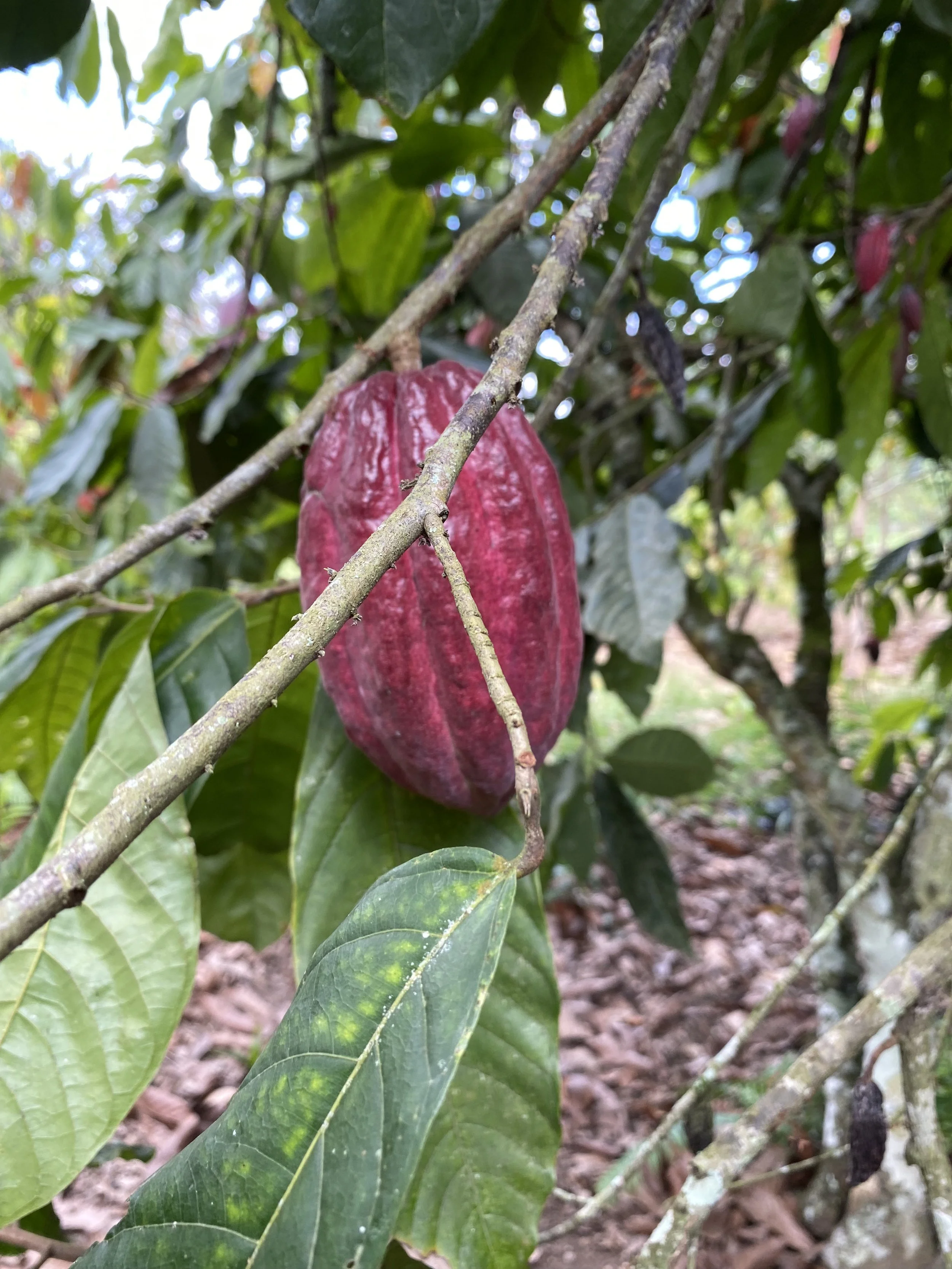Following decades of failed regulatory action in Ghana that has allowed chocolate companies to continuously undercut cocoa farmers, in October 2024, a group of 30 farmers brought four demands before the Ghana Cocoa Board (COCOBOD).
On October 31, 2024, Corporate Accountability Lab (CAL), the University of Ghana School of Law, and Civic Response (Ghana) submitted a grievance to COCOBOD’s grievance and redress mechanism on behalf of 30 cocoa farmers. Yet in the year since filing, COCOBOD has done little to respond to the documented violations – or to improve conditions for cocoa farmers or protect the environment in Ghana.
COCOBOD established its grievance and redress mechanism to come into compliance with requirements for a 2019 $600 million syndicated loan it had received from the African Development Bank (AfDB), Credit Suisse AG, and the Industrial and Commercial Bank of China. In 2020, the Japan International Cooperation Agency, the Development Bank of South Africa, and the Cassa Depositi e Prestiti Spa (the primary Italian development bank) joined the loan.
In the grievance, we urged COCOBOD to seize to implement the following changes:
The Farmgate Price, Transparency, and Traceability: Increase the farmgate price for cocoa to ensure farmers earn a living income, and require full transparency and traceability of supply chains;
Deforestation and Climate Change: Ensure companies comply with their commitments to end deforestation in the sector, and assist cocoa farmers’ transition to agroforestry;
Pesticide Use: Better regulate the sale and use of pesticides in the cocoa sector, ensure that only legal chemicals are used in the correct quantities, and assist farmers in appropriately disposing of pesticides and pesticide containers;
Hazardous Child Labor: Require companies to implement legitimate Child Labor Monitoring and Remediation Systems (CLMRS) as part of their sourcing practices.
Despite COCOBOD’s control over and regulation of the Ghanaian cocoa sector, little has changed in the past year. While cocoa prices are at a record high, farmers face many of the same problems as they have for decades: the cocoa industry leads to deforestation; industry’s failure to embrace a transition to agroforestry hampers efforts to combat climate change; cocoa farmers still use illegal pesticides and overuse legal pesticides; and hazardous child labor remains all too common in the sector. These circumstances are detrimental to the general welfare of cocoa farmers and their families. COCOBOD has a responsibility to listen to cocoa farmers and respond to their needs.
Cocoa tree in Côte d'Ivoire, taken by CAL staff in September, 2022.
The grievance and redress mechanism may not yet be operable. But we – as well as the AfDB and the other invested development banks – must continue to push COCOBOD to operationalize the mechanism and ensure it functions for cocoa farmers. 30 cocoa farmers came together to demand that COCOBOD pay attention to them; we must continue to support them and fight to create a fair and sustainable cocoa industry.
To learn more about the grievance, read our press release. For more background about the COCOBOD grievance and redress mechanism, see COCOBOD’s Unrealised Potential: Promoting Human Rights, Welfare, and the Environment in Ghana’s Cocoa-growing communities (2021).



